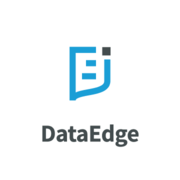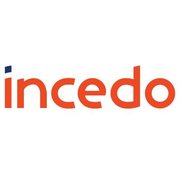Data Science Platforms

Top Rated Products
(1-3 of 3)
All Products
(26-50 of 69)
Explore recently added products
Data Science Platforms TrustMap
TrustMaps are two-dimensional charts that compare products based on trScore and research frequency by prospective buyers. Products must have 10 or more ratings to appear on this TrustMap.
Learn More About Data Science Platforms
What are Data Science Platforms?
Data Science Platforms build predictive models using code, Machine Learning, and vast amounts of data. These models facilitate the creation of business solutions. Data science modeling can predict events and outcomes in the real world and answer questions such as ‘how much product will be sold next year?’, ‘how to optimize supply chain delivery times?’, or ‘how to reduce customer churn?’. The accuracy of the modeling depends on how well the full scope of inputs is understood, and the completeness and accuracy of data.
Their tools can handle volumes of structured and unstructured data that are not supported by traditional databases and statistical software. Data Science Platforms centralize access to multiple data sources and a variety of data science tools, including open-source tools.
These platforms are used by data scientists who capture, clean, and visualize data and use statistical analysis, machine learning capabilities, and coding skills to produce their models. It enables them to run, track, and deploy models. Machine learning engineers help data scientists scale and optimize their models. These platforms are also used by data engineers, citizen data scientists who leverage user-friendly features, and business stakeholders to better understand their business. The platforms readily support model iterations based on stakeholder feedback.
Data Science Tools
Individual data science tools are also included in this category. Data science tools do the same work as data science platforms, helping data scientists to capture, clean, analyze, and visualize data. Individual data science tools may be more limited in scope, assisting with only a portion of this process, or supporting only one programming language, while data science platforms usually support the entire data science process and multiple programming languages.
Difference Between Business Intelligence and Data Science
Business Intelligence uses data analytics to understand how the business has been performing, driving decision-making that is based on past results. This intelligence is used to operate a business in the most effective manner. Data science creates models to predict future performance, and the information these models provide helps transform a business to align with its goals.
Data Science Platforms Features
Data Science Platforms will have many of these features.
- Integrate multiple data science tools
- Centralize data resources
- Handle very large amounts of structured and unstructured data
- Data mining
- Data access, gathering, and preparation
- Data visualization
- Multiple programming language support
- No code options
- Model development and iteration
- Model deployment
- Machine learning
- Deep learning
- Collaboration
- GUI
- Drag and drop building
- Dashboards
- Automated documentation and explainers
- Permissions for access to data and models
- Security
- Audit logs
- Reporting
- Cloud-based, on-premises, hybrid installations
Data Science Platforms Comparison
Consider the following when purchasing Data Science Platforms
Data Science Platforms vs. Data Science Tools: If a variety of complex problems need to be modeled, a data science platform offers many different tools, additional features, and programming language options to meet your needs. Open-source data science tools such as Hadoop, Python, R, and MLlib Apache Spark are sufficient for modeling common and less complex problems such as customer churn.
Open vs Closed Platforms: On some platforms, you are restricted to using their proprietary language such as MATLAB. Others like Anaconda Enterprise support multiple open source programming languages.
Collaboration: Cloud-based platforms facilitate collaboration. Platforms that have robust collaboration features include RapidMiner, DataRobot, and Domino Data Lab.
Data Security: Industries and organizations that have strict data security regulatory requirements such as healthcare and governmental organizations may require an on-premises solution to satisfy those standards. Some vendors offer cloud, on-premises, and hybrid installation options.
Model Deployment: Model deployments entail software engineering skills that are often beyond the capabilities of data scientists. Your in-house expertise will determine how quickly models can be deployed. Evaluate the platform’s deployment features to understand how they may impact deployment timeframes.
In-house Expertise Requirements: Some vendors such as Anaconda Enterprise provide data science modeling environments that will require your in-house data science team to produce all the necessary coding. Others such as Alteryx offer additional support and a more automated approach to data modeling.
Transparency: Platforms shed light on the model they produce by including automated documentation and explainer functionality which promotes data governance and helps reduce bias, compliance, and financial risk. Determine that the features of your selection meet your business’s requirements.
Pricing Information
Data Science Platforms can be expensive starting at around $1,000 a year and ranging over $50,000 a year depending on the tools, features, the number of users, and amount of data that can be supported. Installation fees costing a few thousand dollars are often added to the price. Some vendors will require obtaining a price quote.
More Resources
TrustRadius blog resources for Data Science.
Distinguishing Between Business Intelligence, Business Analytics, and Data Science
Related Categories
Frequently Asked Questions
What do Data Science Platforms do?
What are the benefits of using Data Science Platforms
What are the best Data Science platforms?
These are some of the most popular Data Science platforms.






























